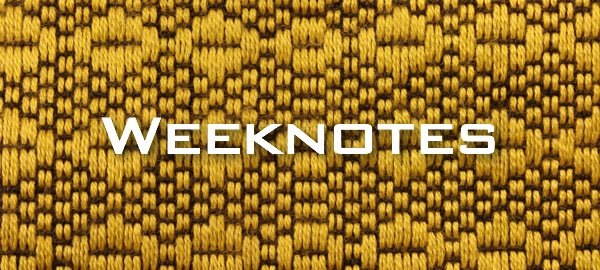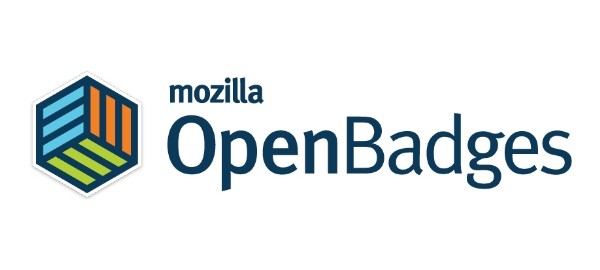
This week I’ve been:
- Tidying up my article on ambiguity. I find myself referencing a 2011 article I wrote with my Ed.D. thesis supervisor Steve Higgins fairly regularly. It’s now available at http://dougbelshaw.com/ambiguity. Comments welcome!
- Talking to companies about Open Badges. This week included a large media organisation, the people behind one of my favourite video games of all times, MOOC providers, and people who make stuff for railways. Badges for everything!
- Confused about meeting times. It’s that time of the year when the US enters Daylight Savings. Everything will be up in the air again when we do likewise in the UK at the end of March!
- Updating the Web Literacy standard blog. If you haven’t already subscribed, it’s here: http://weblitstd.tumblr.com.
- Submitting titles and abstracts. The organisers of both OER13 and the PELeCON conferences both wanted more details on my upcoming keynotes. One of them will have a Wild West theme and the other one will feature more animated GIFs than you can stick a shake at. 😉
- Travelling to Chicago. It was a fairly uneventful trip – oh, apart from the four and a half hours I spent in the immigration queue. Tired Doug is/was tired.
- Attending DML2013. I’ve been in Chicago since Wednesday night for the Digital Media and Learning Conference (where we launched v1.0 of Open Badges). It’s as much a chance to catch up with my colleagues as attend the (excellent) sessions. I’ve written about it on my conference blog.
Next week I’m back home on Monday and in London on Thursday (just for the day) to talk to the games studio alluded to above.

TL;DR version: Mozilla’s launching v1.0 of the Open Badges Infrastructure at the DML Conference 2013 today. There’s a newly designed website and badge backpack.
I’m at the DML Conference 2013 this week where, I’m delighted to say, Mozilla is launching version 1.0 of the Open Badges Infrastructure (OBI). Given how long I’ve been banging on about badges this may seem surprising, but it just goes to show the extent to which Mozilla works in the open with the community!
You should check out the newly-redesigned website and badge backpack (note new URL for latter now it’s out of beta!)
I don’t usually do this, but I believe the text below put together by our new Communications Director Erica Sackin puts things way better than I could:
Open Badges is a new online standard to recognize and verify learning. A digital badge is an online representation of a skill you’ve earned. Open Badges take that concept one step further, and allow you to verify your skills, interests and achievements through a credible organization. And because the system is based on an open standard, you can combine multiple badges from different issuers to tell the complete story of your achievements — both online and off. Display your badges wherever you want them on the web, and share them for employment, education or lifelong learning.
Ten things to know about Open Badges:
- Mozilla Open Badges is not proprietary — it’s free software and an open technical standard. That means any organization can create, issue and verify digital badges, and any user can earn, manage and display these badges all across the web.
- Open Badges knits your skills together. Whether they’re issued by one organization or many, badges can build upon each other, joining together to tell the full story of your skills and achievement.
- With Open Badges, every badge is full of information. Each one has important data built in that links back to the issuer, the criteria it was issued under and evidence verifying the credential — a feature unique to Open Badges.
- Open Badges lets you take your badges everywhere. Users have an easy and comprehensive way to collect their badges in a backpack, and display their skills and achievements on social networking profiles, job sites, their websites and more.
- Individuals can earn badges from multiple sources, both online and offline, and manage and share them using the Open Badges backpack. Today, we’re launching with the Mozilla backpack — other organizations will be able to use Open Badges to make their own backpacks later this year.
- Open Badges make it easy to get recognition for the things you learn, both online and off. Open Badges includes a shared standard for recognizing your skills and achievements — and lets you count them towards an education, a job or lifelong learning.
- Open Badges make it easy to give recognition for the things you teach. Anyone who meets the standards can award badges for skills or learning.
- Open Badges make it easy to display your verified badges across the web. Earn badges from anywhere, then share them wherever you want—on social networking profiles, job sites or on your website.
- Open Badges make it easy to verify skills. Employers, organizations and schools can explore the data behind every badge issued using Mozilla Open Badges to verify individuals’ skills and competencies.
- Open Badges is free, open to anyone to use and part of Mozilla’s non-profit mission. Open Badges is designed, built and backed by a broad community of contributors, such as NASA, Smithsonian, Intel, the Girl Scouts, and more. The open source model means that improvements made by one partner can benefit everyone, from bug fixes to new features.
Do feel free to ask me any questions in the comments below!


